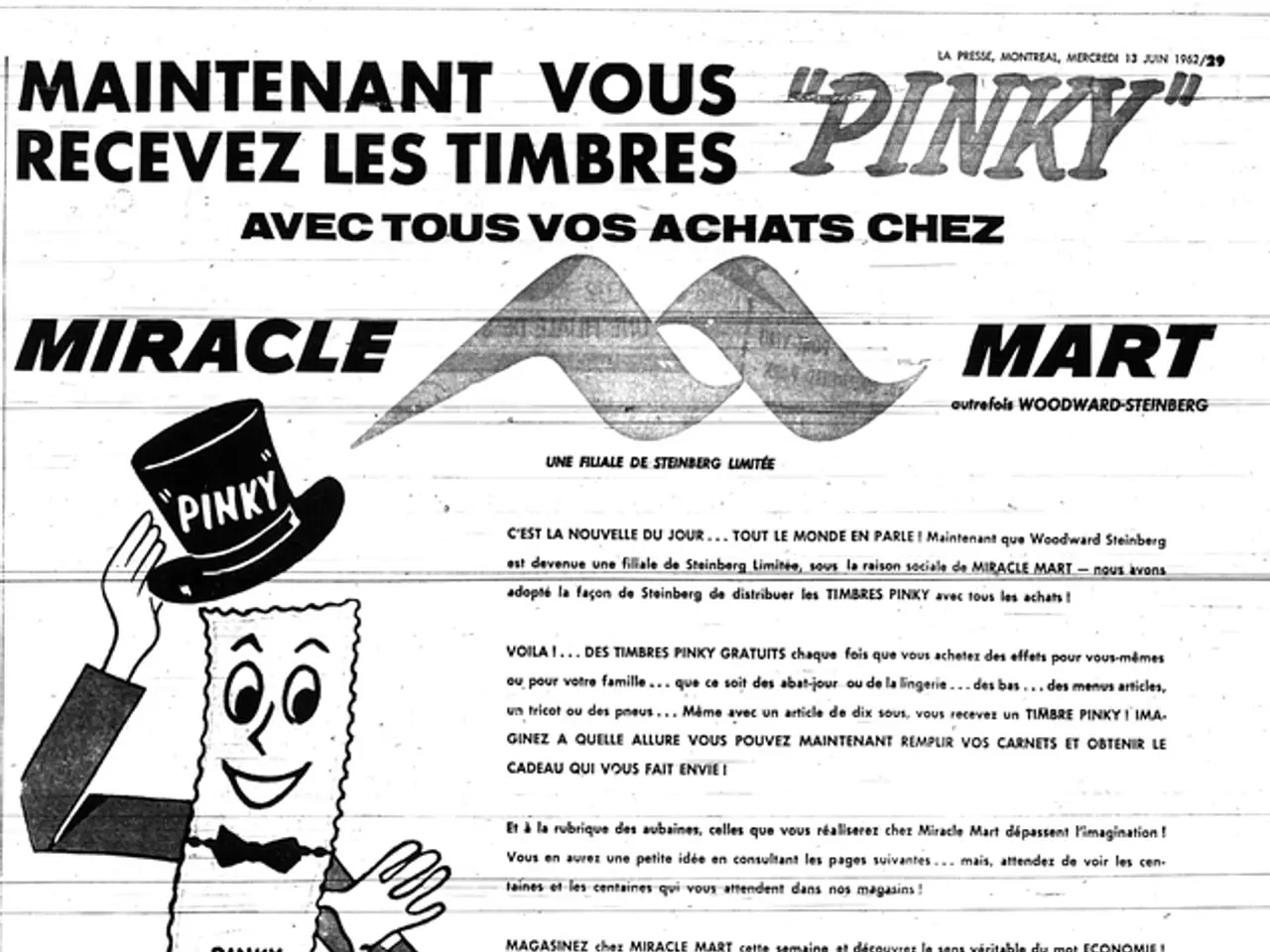Marketing Strategy: Significance, Operation, Benefits, Drawbacks
Sales promotions are a common tactic used by companies to stimulate sales and increase market share. These short-term strategies can take various forms, including discounts, coupons, buy-one-get-one-free offers, contests, and lotteries.
One of the primary purposes of sales promotions is to attract customers, both new and existing, to retail stores. By offering product samples, free or at low prices, sellers aim to stimulate future purchases, especially for new products. Additionally, sales promotions can be used to educate customers about product improvements or the introduction of new products.
Sellers also use point of sale material, such as posters and display stands, to attract customers. Contests, where buyers must perform a task or show specific skills to win a prize, and lotteries, where buyers have the chance to win prizes, are popular forms of sales promotions. Consumers can also benefit from voucher systems, where they can exchange vouchers for price discounts, similar to coupons.
Loyalty cards are another tool used in sales promotions. Customers can use a loyalty card when buying goods, and the more they shop, the more points they accumulate. These points can later be exchanged for cash or certain items. Companies like Dr. Oetker, Odol, and Persil have historically used sales promotions and marketing strategies to increase sales, with Dr. Oetker’s Backpulver marking the beginning of European marketing strategies.
Modern examples include Whole Foods with digital bonus programs and Lidl with Lidl Plus loyalty programs that use promotional offers to boost sales. Sales promotions can target consumers, aiming to persuade them to buy a product, or intermediaries and company salespeople.
While sales promotions can generate more sales in the short term, their effectiveness may depend on factors such as the type of promotion and the target audience. Companies like to use sales promotions in combination with other promotion strategies such as advertising, personal selling, direct marketing, and publicity.
It is important to note that sales promotions are not suitable for building long-term customer loyalty. Instead, they are designed to stimulate market demand or increase product availability. Sales promotions can lead to increased consumer spending in the short term, but their impact on long-term consumer behavior is less clear.
In conclusion, sales promotions can be a useful tool for companies looking to boost sales and increase market share. By offering attractive deals and incentives, sellers can attract customers and encourage them to purchase their products. However, it is essential to consider the long-term impact of these promotions on consumer behavior and brand loyalty.
Read also:
- Trade Disputes Escalate: Trump Imposes Tariffs, India Retaliates; threatened boycott ranges from McDonald's, Coca-Cola to iPhones
- Aquatech purchases Koch's Direct Lithium Extraction business, merging Li-ProTM DLE technology into the PEARLTM Technology Platform.
- Nepal's Journey: Evolution from Street Life to Political Power
- Li Auto faces scrutiny after crash test involving i8 model and a truck manufacturer sparks controversy




